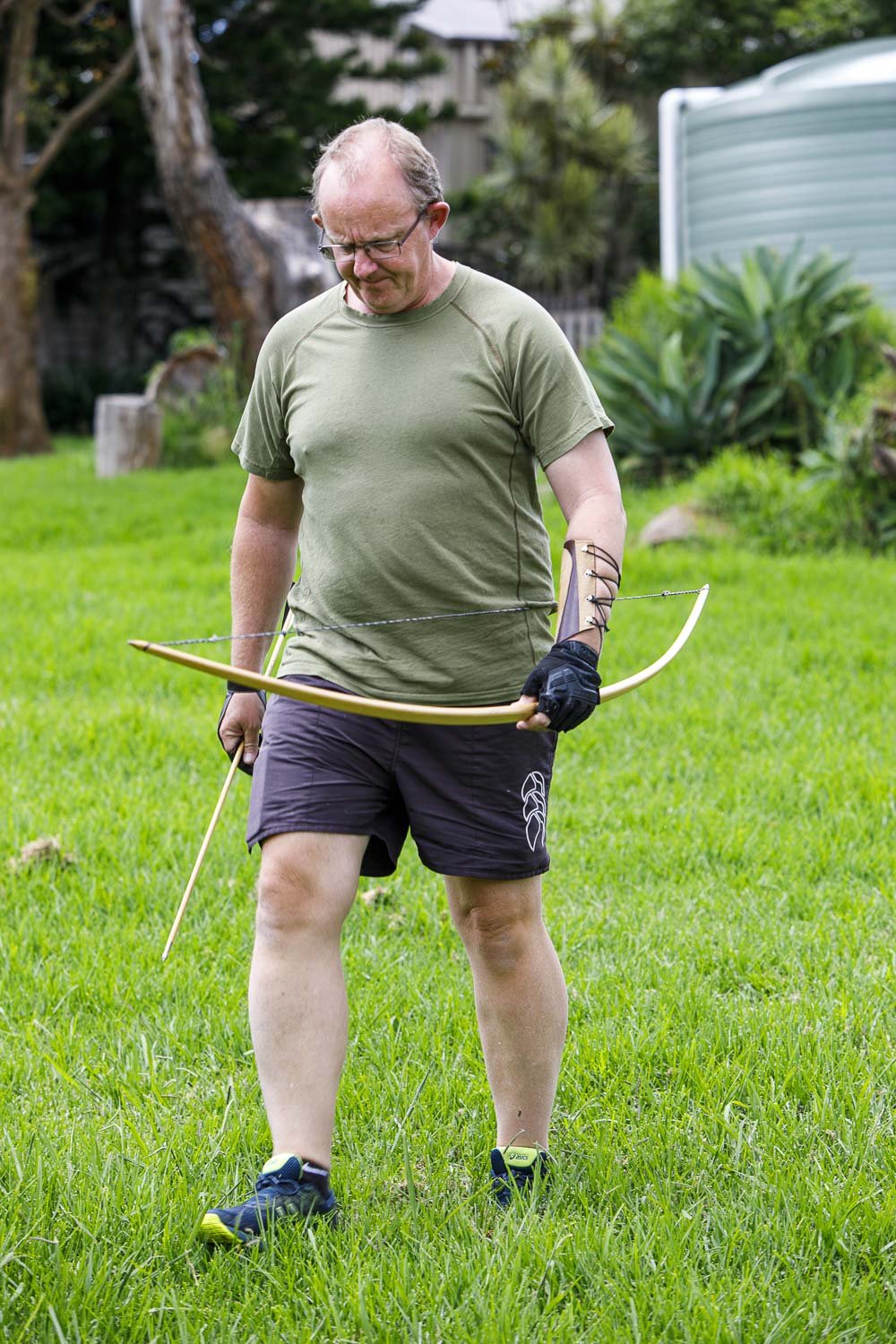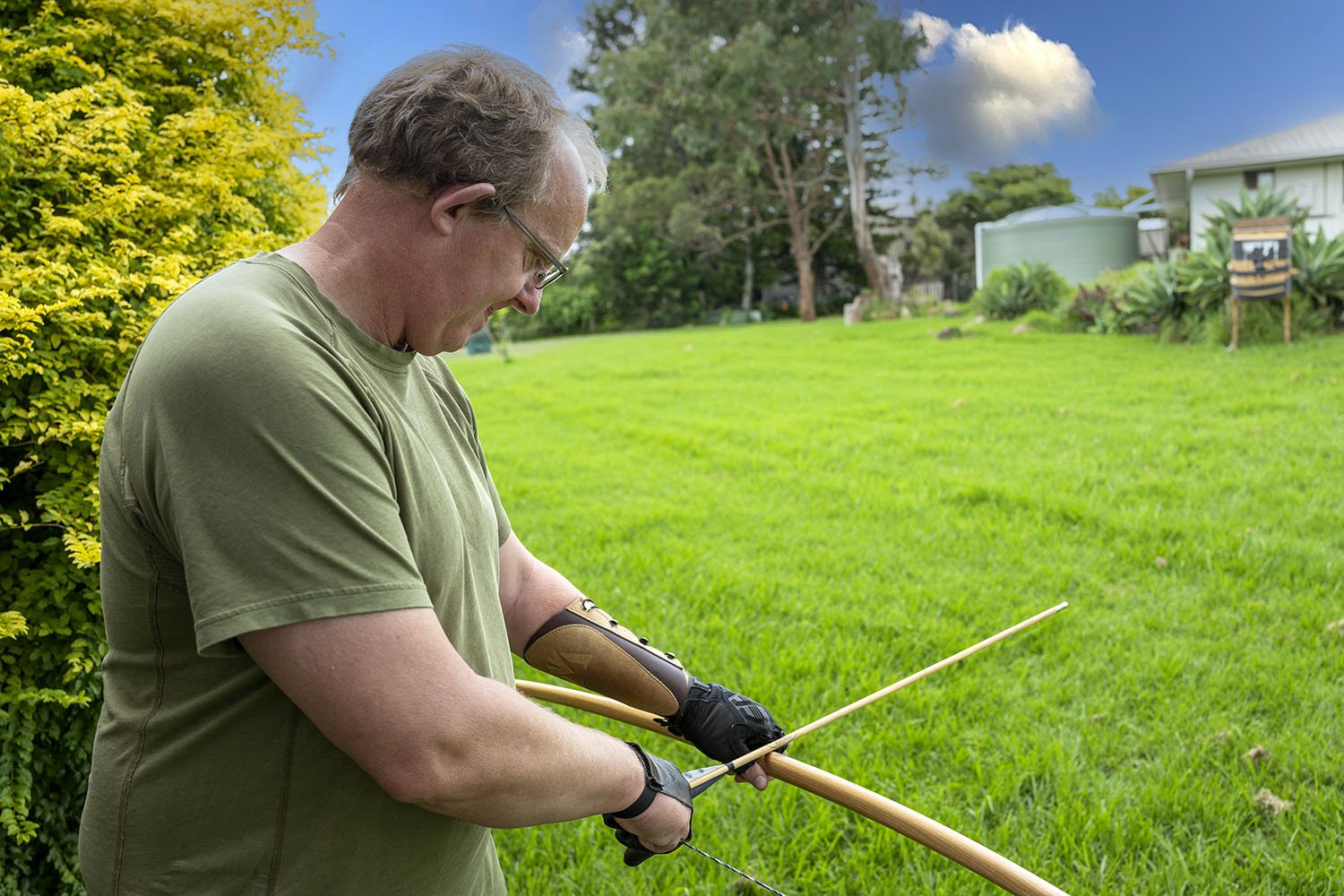Roger Marsh
Army, Author
Born the son of a military man, Roger spent a lot of his childhood in northern New South Wales. His father had served in Korea, although he had left the navy before Roger was born.
“My father left the navy but the navy never left him,” says Roger.
“I was a pretty rough kid and a bit of a loner. If pushed, I could become quite violent. But I generally left people alone. I loved martial arts and I loved reading.”
Roger’s family background is strongly Welsh and he believes it has given him a strong longing to be connected to a place.
“When a Welsh friend was being encouraged to emigrate to Australia, she replied, ‘If I can’t see the mountain in the morning, I won’t know who I am,’ ” he explains.
While a wandering military life meant that this kind of connection eluded Roger, the positive side of his heritage and its cultural background gave his poetry and writing a distinctive style.
Roger remembers that his goal was always to enlist. His original intention was to be a pilot in the British air force. However he didn’t meet the residency requirements at the time. It was some years later, after 9/11, that this intention became much stronger.
At this time Roger had completed university, studying Greek and Hebrew, and had a strong bent for other languages. He was also an ordained Chaplain.
“Chaplains in the Australian army are unlike Chaplains just about anywhere else in the world. We trained on weapons and were allowed to carry them. When I was in Afghanistan, I needed to be able to defend myself. I had grown up around firearms and was familiar and comfortable with them. I didn’t come to the army inexperienced with firearms. I understood that the application of controlled force has an appropriate place. People tend to misinterpret the Bible’s teachings. The Old Testament, being written in Hebrew, actually reads, You shall do no murder, rather than the common interpretation of You shall not kill. It means that we shouldn’t take life unlawfully.”
Roger’s work as a Chaplain involved many difficult situations but he found notifying a family of a casualty or death the most harrowing.
“I had to identify the dead in Afghanistan. It’s pretty awful. But dealing with living, breathing and grieving people was what wore down my mental health more than anything else. I realised later that women’s screaming was actually quite a trigger for me.
“The Chaplain’s role is a very reactive one. In one sense, you’re helpless. You can’t change any of the circumstances. You can’t go out on a patrol to capture, or kill, the people who’ve just created chaos for you. You just stay with the broom and the bucket waiting for what’s coming next,” he says.
“But when I came back, it was not a time for rest. We had had a string of casualties and work was hard. It took two years before I realised I had a problem. I sought help but I knew that I couldn’t keep doing the job. I needed to get out, which led me to being medically discharged.
“I started writing while I was in active service, to clean the rubbish out of my head and to try to distil the essence of my experience. I also wrote because I realised that the people I went to school with were now across a cultural divide from me. They didn’t understand why army personnel are the way we are. I wrote my first book, Echoes in the Wind to try to explain that a little, if I could. The character of Rob in my book is heavily based on me.
“It’s like a form of exposure therapy crossed with narrative therapy. In order to write about things I experienced, I have to actually walk in that valley again. The narrative therapy helps me to come to grips with my feelings and emotions.”
Roger’s writing was helping to really process what he’d been through when his son, Jonathan, became ill with an incurable form of brain cancer at age 12. He knew then that he had to stop working as a minister.
Jonathan died during the Covid-19 pandemic when a maximum of ten people were allowed to congregate. To enable himself, his wife and children and immediate family members to attend the funeral, Roger was the celebrant. He was able to do this because Jonathan died with hope and a lot of cheerful defiance.
“I knew then that I would never do another funeral after that. I just can’t do them anymore,” he says, quietly.
Roger has now reached the point where he introduces himself as an author and not a minister. His second novel, A Wind of Bitter Tears, is ready for publication and he has two more to follow. His idea is to take his main characters to the point where they’re both out of the army.
“The third book is really what I wish somebody had said to me immediately after all the worst stuff happened. I’m crafting it to answer some of the questions that whirled around in my brain and how to manage that situation.
“We really do need some way of actually helping people journey and ask the right questions of themselves. I hope that my writing can do that for someone, to some small degree.”
@rogermarsh_author





